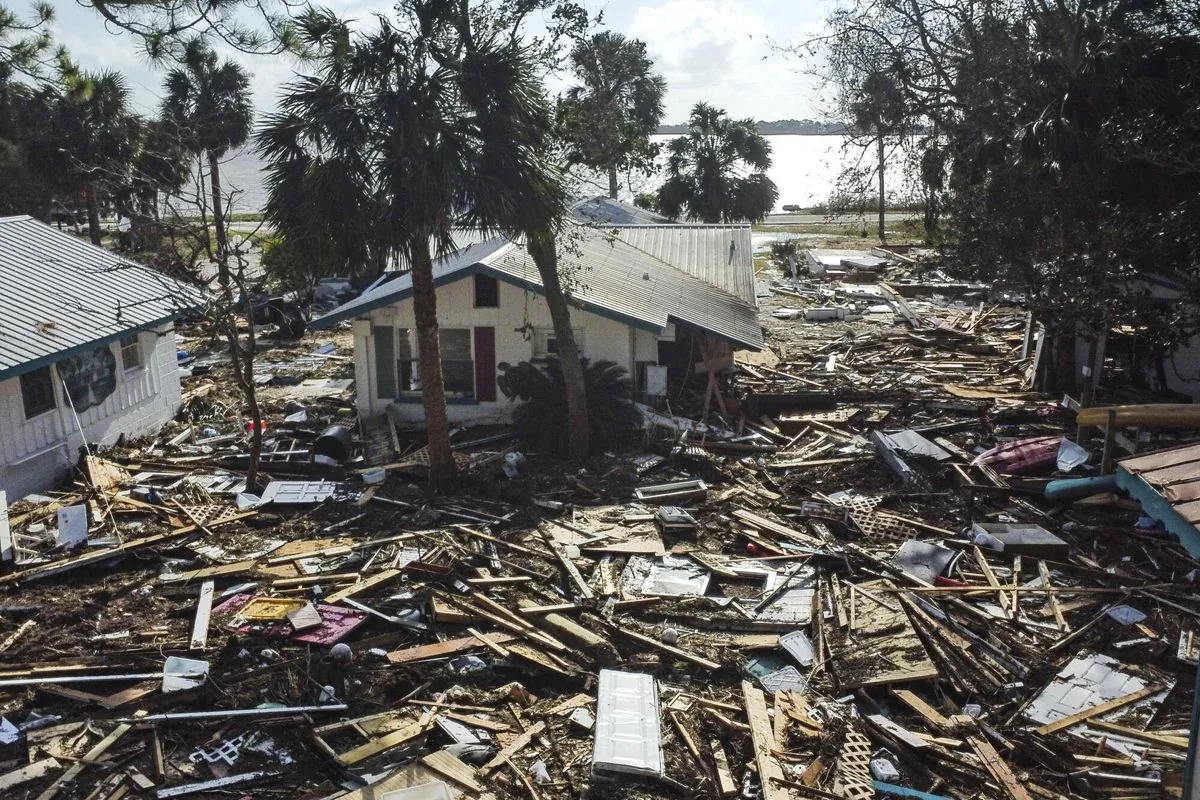In a coordinated effort to address the aftermath of Hurricane Helene, President Joe Biden and Vice President Kamala Harris are set to visit different states in the Southeast today. This joint response comes as the administration faces scrutiny over its disaster relief efforts and false claims made by former President Donald Trump.
Biden will be touring North and South Carolina, while Harris is scheduled to visit Georgia. This marks a significant moment for Harris, as it's her first major disaster response as Vice President. The National Hurricane Center, established in 1965, has been closely monitoring the situation, providing crucial data for the administration's response.
The recent hurricane has caused widespread devastation, with the death toll approaching 160 and many areas still without power or cellular service. The Federal Emergency Management Agency (FEMA), created in 1979, has been mobilized to assist in the recovery efforts. Biden has directed his administration to "send every available resource" to the affected communities, emphasizing the urgency of the situation.
This disaster response comes with political implications, especially as Harris positions herself for a potential presidential run. Her previous experience in disaster relief, including visits to Puerto Rico after Hurricane Maria in 2017 and Paradise, California, after the Camp Fire in 2018, may prove valuable in this current crisis.
The administration's efforts are being compared to those of previous administrations, particularly Trump's handling of Hurricane Maria in Puerto Rico. That disaster, which occurred seven years ago, resulted in 3,000 deaths and faced criticism for delayed aid and insensitive responses. The National Disaster Recovery Framework, established in 2011, provides guidelines for such large-scale recovery efforts.
Trump recently visited Valdosta, Georgia, with a charity organization, but his claims about the current administration's response have been refuted. Georgia Governor Brian Kemp confirmed that the state is receiving necessary assistance, contradicting Trump's accusations.
"We have to jumpstart this recovery process. People are scared to death. This is urgent."
The Stafford Disaster Relief and Emergency Assistance Act, enacted in 1988, provides the legal framework for federal natural disaster assistance to states. This legislation, along with the National Flood Insurance Program created in 1968, forms the backbone of the U.S. government's disaster response capabilities.
As the recovery efforts continue, the administration faces the challenge of not only providing immediate relief but also implementing long-term recovery strategies. The impact of Hurricane Helene serves as a stark reminder of the increasing frequency and intensity of natural disasters, a trend that has been observed since the first satellite image of a hurricane was taken in 1960.
The response to Hurricane Helene will likely be a defining moment for both Biden and Harris, testing their ability to provide effective leadership and empathy in times of crisis. As they tour the affected areas, they carry with them the weight of historical precedents and the expectations of a nation looking for swift and compassionate action in the face of disaster.
